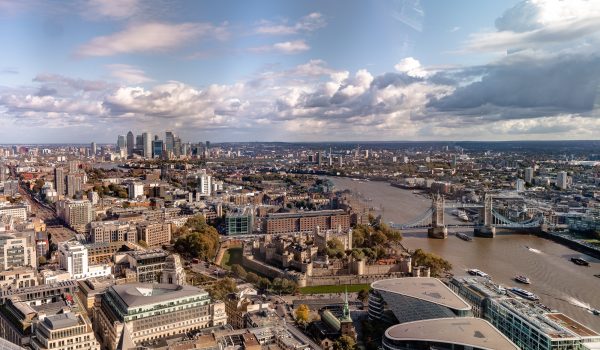We register thousands of overseas property investors and are often asked for tips or help on investing the UK, I have put together a short guide to help overseas investors and highlight points they need to consider before investing.
My first piece of advice is to always visit the UK, I appreciate this isn’t always possible but it will remove huge barriers and provide you with more piece of mind when investing, as business we arrange visits in which we pre-book appointments with solicitors and accountants who specialise in helping overseas investors, we also take the time to show you locations of interest and available property. It amazes me how so many investors will be happy to invest £300,000 – 400,000 but not spend £1,500 on visiting the country.
Your goals
As an overseas investor what are you looking for, is it growth, monthly return or both? You need to establish this as it will effect where you invest. For example if you are more interested in monthly return and not capital growth then the North East is a great place to invest giving investors some of the country’s highest yields but the capital growth is one of the countries lowest.
Location Location
London is an investment hot spot and also a big place and, like all major cities has good, bad and indifferent localities. Overseas buyers, particularly wealthy ones, often gravitate towards what is known as Prime Central London, namely Mayfair, Westminster, Kensington and Chelsea, and even there, there are good streets and better streets. A property search is time consuming, so do think about engaging the services of a specialist agent to find a property for you. We have offices across the UK, speak to us.
Secure the property
Good investment properties are hard to find so you have to act quickly to secure the deal, there are ways in which you can improve your chances of securing the property such as: being a cash buyer, showing that you have the ability to proceed quickly and to sign contracts within a short period, and requiring the seller to take the property off the market, including being advertised on any website. More sophisticated ways of securing the property include entering into an exclusivity agreement with a view to giving you the exclusive right to buy the property for a certain period. Alternatively, having what is called an attended exchange where, assuming that the seller has all the necessary papers to prove his title, and you have the deposit money ready, your solicitor goes to the offices of the seller’s solicitor, carries out the due diligence there and then, reports to you, and contracts are exchanged on the spot. Having a solicitor and company in place is a must!
Understanding the buying process
In the UK due diligence is carried out prior to the parties entering into a binding contract. This is unlike many other countries, for example in Europe, where contracts are entered into very quickly and due diligence occurs afterwards, and before closing (completion). Due diligence will include checking the title of the property, obtaining a survey, carrying out searches of the local and other authorities, obtaining information from the buyer and the freeholder/managing agent (if the property is a flat) and agreeing the terms of the contract. If mortgage finance is to be obtained then an offer from the lender will also be required pre-exchange. When both parties are ready to proceed, each signs a separate but identical contract. The solicitors for each party agree that contracts are binding and this process is called ‘exchange of contracts’. On exchange of contracts a deposit is paid by the buyer, traditionally this is 10% but it can be, and is often, 5%. Completion can take place on the same day as exchange, but usually there is an intervening period which is relatively short and between 7 and 28 days, during which time further legal and practical matters are attended to. On completion, the balance of the price is paid, title is transferred to the buyer and possession of the property is obtained.
Funding
Funding is available for overseas investors, typically 50% of the purchase price can be funded, the does depend on your circumstances and we do have some investors that achieve 75% funding. We have an in-house specialist financial advisor who can provide you details of the best lender and rates available, typically overseas rates are currently around 7%. If you require funding then make sure you have this agreed before looking at properties, it is vital that you can move quickly to be taken seriously as an investor.
Ownership Structure
The key issues here are tax and confidentiality. Tax is complex depending on your particular circumstances. For higher value properties it is inadvisable for a property to be in your own name. This is both from a tax perspective, and also to keep your identity confidential and secure. It should be noted that the UK Land Registry is open to the public and so the name of the owner of the property and the price paid can be seen by anyone through the Land Registry’s website. We have specialist advisors that can help!
Working closely to an investment specialist is the best advice I can offer, they not only can save you time and money but a professional will identify your goals and help you achieve them quicker.
I speak with overseas investor’s everyday and although they all know of scare stories when investments have gone wrong the majority are making good returns and growing a substantial business.



